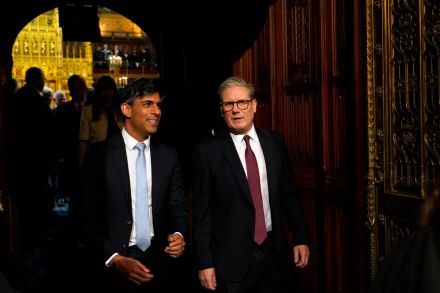Keir Starmer is acting like he’s still in opposition
Keir Starmer made a couple of verbal slips at Prime Minister’s Questions. Both were quite telling. The first was that he repeatedly referred to Rishi Sunak as the ‘Prime Minister’. An easy mistake to make, perhaps, when both are still getting used to the job swap they performed after the election. But the reason it was an appropriate slip was that Starmer was still largely in opposition mode, complaining about mistakes that the Conservatives had made. The pair started by sparring on the winter fuel allowance, with Starmer making the argument that he and Rachel Reeves have made repeatedly since the Chancellor announced she was restricting this universal benefit to




















